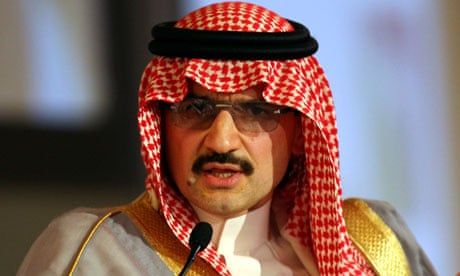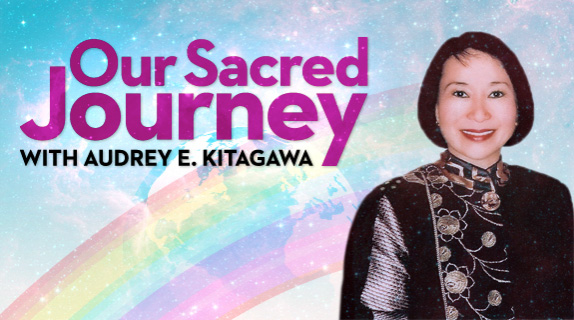- Details
- Written by: Kamran Mofid
- Hits: 3174
Why the politics of envy are keenest among the very rich?
'Essential public services are cut in order that the wealthy may pay less tax.
But even their baubles don't make them happy.'

The Politics of Envy (YouTube)
How Much Is Enough? What is money and wealth for? Why do we as individuals and societies go on wanting more? What is economic growth for? Can we/ should we carry on just growing, creating, producing, consuming,…,more and more, for ever more? Do we need to satisfy our wants or look after our needs? Should we be a “maximiser” or “satisfier” and choose the path of “enoughness”? Then, what is a good life? What are the main ingredients of a good, happy and peaceful life? Should we move away from Gross National Product (GDP) to Gross National Happiness?
In short, is the incessant quest for higher incomes and faster growth robbing us of the good life rather than helping us to attain it? And, in the end, what adjustments in our moral and economic system would be needed to realize change?
"Capitalism rests precisely on this endless expansion of wants. That is why, for all its success, it remains so unloved. It has given us wealth beyond measure, but has taken away the chief benefit of wealth: the consciousness of having enough ... The vanishing of all intrinsic ends leaves us with only two options: to be ahead or to be behind. Positional struggle is our fate."- Robert and Edward Skidelsky 
'Saudi Prince Alwaleed is said to have been near tears when Forbes reported his wealth at £7bn less than he calculated it.'
Photo: Ahmed Jadallah/Reuters/The Guardian
“Never mind that he has his own 747, in which he sits on a throne during flights. Never mind that his "main palace" has 420 rooms. Never mind that he possesses his own private amusement park and zoo – and, he claims, $700m worth of jewels. Never mind that he's the richest man in the Arab world, valued by Forbes at $20bn, and has watched his wealth increase by $2bn in the past year. None of this is enough. There is no place of arrival, no happy landing, even in a private jumbo jet. The politics of envy are never keener than among the very rich.”
Whilst, David Siegel – "America's timeshare king" – appears to abandon all interest in life as he faces the loss of his crown. He is still worth hundreds of millions. He still has an adoring wife and children. He is still building the biggest private home in America.
But as the sale of the skyscraper that bears his name and symbolises his pre-eminence begins to look inevitable, he sinks into an impenetrable depression. Dead-eyed, he sits alone in his private cinema, obsessively rummaging through the same pieces of paper, as if somewhere among them he can find the key to his restoration, refusing to engage with his family, apparently prepared to ruin himself rather than lose the stupid tower.”
And in order to maintain this bankrupt, immoral, and unhealthy philosophy, whilst continuing “to grant the rich these pleasures, the social contract is reconfigured. The welfare state is dismantled. Essential public services are cut so that the rich may pay less tax. The public realm is privatised, the regulations restraining the ultra-wealthy and the companies they control are abandoned, and Edwardian levels of inequality are almost fetishised.
Politicians justify these changes, when not reciting bogus arguments about the deficit, with the incentives for enterprise that they create. Behind that lies the promise or the hint that we will all be happier and more satisfied as a result. But this mindless, meaningless accumulation cannot satisfy even its beneficiaries, except perhaps – and temporarily – the man wobbling on the very top of the pile.”
Can we not rise above all these lies and naked exploitation? We, the masses, must rise: enough is enough. Let me be happy. Let me be content. I have enough. Thank you.
Read more:
Why the politics of envy are keenest among the very rich
Enough is Enough: The economics of enough
Lord Skidelsky and Edward Skidelsky, “How Much Is Enough?”
A TED Talk on Income Inequality by Nick Hanauer- Rich people don't create jobs"
- Details
- Written by: Kamran Mofid
- Hits: 3539
Updated on 6 June 2023
‘The model of more is failing both environmentally and socially, and practically everyone is still cheering it on… it almost makes you want to climb to the top of the highest building and shout, “ENOUGH!”
How Much Is Enough? What is money and wealth for? Why do we as individuals and societies go on wanting and yearning for more? What is economic growth for? Can we/ should we carry on just growing, creating, producing, consuming,…,more and more, for ever more? Do we need to satisfy our wants or look after our needs? Should we be a “maximiser” or “satisfier” and choose the path of “enoughness”? Then, what is a good life? What are the main ingredients of a good, happy and peaceful life? Should we move away from Gross National Product (GDP) to Gross National Happiness?
In short, is the incessant quest for higher incomes, more and more profits at any cost, and faster growth robbing us of the good life rather than helping us to attain it? And, in the end, what adjustments in our moral and economic system would be needed to realise change?
Enough Is Enough: Building a Sustainable Economy in a World of Finite Resources
A Must-read book by Dan O'Neill and Rob Dietz

‘It’s time for a new kind of economy
'We’re overusing the earth’s finite resources, and yet excessive consumption is failing to improve our lives. In Enough Is Enough, Rob Dietz and Dan O’Neill lay out a visionary but realistic alternative to the perpetual pursuit of economic growth – an economy where the goal is enough, not more.
They explore specific strategies to conserve natural resources, stabilise population, reduce inequality, fix the financial system, create jobs, and more – all with the aim of maximising long-term well-being instead of short-term profits. Filled with fresh ideas and surprising optimism, Enough Is Enough is the primer for achieving genuine prosperity and a hopeful future for all.’- See more HERE
In his foreword to ‘Enough is Enough’ Herman Daly writes these inspiring and thought provoking words to celebrate the publication of this timeless book:
Enough: The Central Concept in Economics
‘I have long wanted to write a book on the subject of “enough” but never did. Now I don’t have to because Rob Dietz and Dan O’Neill have done it in a clearer and more accessible way than I could have. Therefore, it is a special pleasure for me to write a foreword calling attention to their important contribution.
Enough should be the central concept in economics. Enough means “sufficient for a good life.” This raises the perennial philosophical question: What is a good life? That is not easy to answer, but at a minimum, we can say that the current answer to “having ever more” is wrong. It is worth working hard and sacrificing some things to have enough, but it is stupid to work even harder to have more than enough. And to get more than enough not by hard work but by the exploitation of others is immoral.
Living on enough is closely related to sharing, a virtue which today is often referred to as “class warfare.” Real class warfare, however, will not result from sharing, but from the greed of elites who promote growth because they capture nearly all of the benefits from it while “sharing” only the costs.
Enough is the theme of the story of God’s gift of manna to the ancient Hebrews in the wilderness. Food in the form of manna arrived like dew on the grass every morning and was enough for the day. If people tried to gather more than enough and accumulate it, it would spoil and go to waste. So God’s gift was wrapped up in the condition of enough—sufficiency and sharing—an idea later amplified in the Lord’s Prayer, “give us this day our daily bread.” Not bread for the rest of our lives or excess bread with which to buy whatever luxuries we may covet, but enough bread to sustain and enjoy fully the gift of life itself.
This story from Exodus has parallels in the thoughts of pioneer ecological economist and Nobel Prize-winning chemist, Frederick Soddy. Soddy observed that humanity lives off the revenue of current sunshine that is gathered each day by plants with the aid of soil and water. Unlike manna, some of the sunshine was accumulated and stored by geologic processes, and we have consumed it lavishly with mixed results. Today, we also try to accumulate surplus solar income and exchange it for a permanent lien on future solar income. We then expect this surplus, converted into debt in the bank, to grow at compound interest. But the future solar-based revenue, against which the debt is a lien, cannot keep up with the mathematics of exponential growth, giving rise to debt repudiation and depression.
For the Hebrews in the wilderness, the manna economy was designed with “enough” as a built-in feature. Our economy does not have that automatic regulation. We have to recognize the value of enough and build it into our economic institutions and culture. Thanks to Dietz and O’Neill for helping us do that.’- Herman Daly is CASSE Chief Economist, Professor Emeritus (University of Maryland), and past World Bank senior economist.
Read more: Enough Is Enough (Excerpt)
Read more and buy the book HERE
Enough is Enough: The Film
'Enough Is Enough lays out a visionary but realistic alternative to the perpetual pursuit of economic growth-an economy where the goal is enough, not more.
“Based on the best-selling book by Rob Dietz and Dan O’Neill, the film explores specific strategies to fix the financial system, reduce inequality, create jobs, and more.
Drawing on the expertise of Tim Jackson, Kate Pickett, Andrew Simms, Natalie Bennett, and Ben Dyson, Enough Is Enough is the primer for achieving genuine prosperity and a hopeful future for all.'- Watch the film HERE
ENOUGH is ENOUGH: A pick from our archive
How Much is Enough? Money and the Good Life (2013)
The Super-rich and the Politics of Envy (2013)
In Praise of Frugality: Materialism is a Killer (2014)
The Joy of Less (2014)
Small is Beautiful: The Wisdom of E.F. Schumacher (2011/2015)
Hello Fat Cats! Do you fancy a dialogue for the Common Good? (2016)
Economic Growth: The Index of Misery (2018)
What is Money? Is it Money Money Money, Must be funny? (2018)
Happiness is to Do Nothing (2018)
The Secret of Success is Idleness: Less is More! (2018)
The Art of Living a Happier life: Solitude- The Most Important Skill Nobody Taught You (2018)
Why Happiness Should be Taught at Our Universities (2011/2019)
The beauty of living simply: the forgotten wisdom of William Morris (2019)
Simpler life and simpler times: A Journey in Life (2019)
In these troubled times let us be ordinary and enjoy the simple pleasures of life (2019)
The Beauty and Wisdom of being Ordinary (2019)
- Details
- Written by: Kamran Mofid
- Hits: 3730

Audrey E. Kitagawa interviews Prof. Kamran Mofid, Founder of the Globalisation for the Common Good Initiative.
'The interview was wide ranging including discussion about globalisation and the common good, financial crisis, education, MBA, Business Schools, teaching of economics, the value of values and more.'
Mofid explains, "It was one of the most rewarding encounter, discussion and debate I have ever had."
“Starting a movement for reformation of how Economics is taught at universities, and seeking to instill positive values as a foundation for education and daily life, Kamran Mofid created the Globalization For The Common Good Initiative (GCGI). Joining with a broad spectrum of disciplines from religious communities to think tanks, he spawned the Journal of Globalization for the Common Good, hosted at Purdue University. For 12 years, GCGI’s international annual conferences held in different countries, from Russia to Kenya, the United Kingdom, and France, continues to gain momentum, with ever broadening communities that seek to promote values of respect, gratitude, love, and caring. The GCGI produces cutting edge research and innovative policy ideas for a just, democratic and sustainable world. It strives to bring the human face and heart to impersonal market forces and seeks to bring cultures, faiths and academic disciplines together to foster appreciation and cooperation for eachother.”
The interview can be heard online at the website of the Voice America at:

http://www.voiceamerica.com/episode/67749/globalization-for-the-common-good
- Happy List: In Praise of true happiness- Do it for the Common Good
- Thanks God, it seems, morality is becoming fashionable again!
- Margaret Thatcher: This is a state funeral, and it is a very big mistake
- The Memorable Speech on Thatcher: Glenda Jackson
- A moving and telling account of Thatcher and Thatcherism
